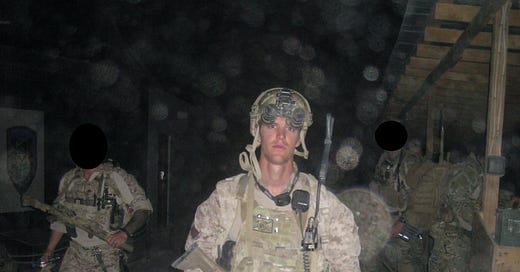As part of my continuing efforts to honor veterans, I recently interviewed Navy SEAL Matt Nasveschuk, who served with SEAL Team 2.
Nasveschuk served in Afghanistan, and I found his story of service (and especially his wisdom and reflections on it), so inspiring.
I hope you enjoy it as much as I did.
Where were you born? (And/or what was your hometown?)
I …
Keep reading with a 7-day free trial
Subscribe to The View from the Front Podcast. By Stan R. Mitchell. to keep reading this post and get 7 days of free access to the full post archives.



